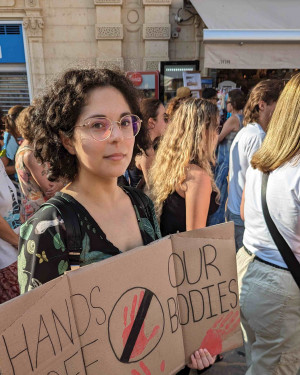Education System & Students
Education is a critical pillar of our community. It moulds future generates and also impacts current ones. One doesn't have to stop learning at any age but the system in place needs to be fit for purpose.
Curriculum overhaul
Conduct a holistic review of the totality of Malta’s syllabi from primary to post-secondary in collaboration with diverse stakeholders.
Identify excessive information which does not add short or long-term value.
Prioritise critical engagement.
The transition from a test-based system to an overall assessment one where possible.
Prioritise teaching of learning.
Ensure facilitation of pedagogical experimentation.
Emphasise Science, Technology, Engineering, Arts and Mathematics (STEAM) subjects, and actively connect to arts and creativity.
Increase the emphasis on learning skills and competencies, e.g. oral communication, public speaking and written skills.
Remove assessments & make homework voluntary for the following subjects at Primary Level & Secondary level;
Religion
Ethics
Social Studies
Drama
Art
Music
PSDC
Require schools to teach not more than 1 foreign language during regular school time at secondary level in addition to Maltese & English. This would be to further increase fluency and proficiency in Maltese & English
Facilitate additional language learning as an extracurricular activity (e.g after-school lessons)
Involve civil society in the design of selected classes and seminars to ensure that necessary skills are created, and achieve a greater degree of mobility.
Ensure ‘Religion’ informs perspectives of different religions on topics discussed in an objective and unbiased manner, and preferably also through professionals.
Invest in research to find better and more creative ways to teach, like phenomenon-based learning
teaching by topic peer-to-peer learning, more experimental approaches, value-based education, and competence thinking to facilitate creativity and imagination.
Empower every child to build on strengths while securing minimum standards, and encourage children to learn through leadership, participation and civic awareness.
Review neuroscientific and biological research papers on learning, attention and concentration, e.g. concerning class times, exam times etc. and experiment with new structures of class times.
Invest in education centres connected to local artisanship and excellence.
New useful classes
Introduce classes on media literacy at primary & secondary levels, that explore creativity and empathy through film, drama and art.
Ensure civic education is sufficient, which teaches how the political system works, at the local, national and European levels.
Introduce life competencies class for the 4th year of secondary education which will cover content such as economics and basic financial literacy, legal basics, social competencies, sustainability, healthy lifestyle, as well as the cooperation of the schools with their local environment.
The class should also prepare students for the accredited course on financial literacy.
Introduces classes on philosophy at the secondary level to foster critical thinking.
Ensure intercultural education is a unit within appropriate subjects at various levels of the education system.
Educators
Invest in ‘Ethics’ teachers. Work to increase the number of teachers who can study ‘Master of Education in Teaching of Ethics in Schools’ at the University of Malta from 10 to 20-30 per year, until there are enough potential educators to supply Malta’s schools.
Temporarily reduce tuition fees by 50% for the duration.
Ensure Ethics teachers can start working with a relevant Bachelor's degree.
Ensure Inclusivity & Anti-Racism are part of the curriculum to become a teacher and also for continuous development, to also facilitate discussing potentially sensitive subjects such as colonialism, therefore a good understanding of decoloniality may be beneficial.
Increase the starting salary of educators to €30,000 over a period of time. To incentivise potential educators, retention, and combat the shortage. ○ Adjust wage increases correspondingly.
Ensure extracurricular engagement and overtime is compensated fairly.
Invest in emotional support, counselling, psychological guidance and care for teachers provided by specialised staff and in close collaboration with local medical facilities.
Encourage and reward long-term commitment by educators.
Community building
Create a community space within schools in which symbols and information of different religions are added, and respected.
Ensure that at minimum, the school includes symbols that represent the religions of the students present.
Create special programs of integration for migrant children to help them adjust to a new culture, language, and environment.
Turn education centres into community focal points for the exchange of ideas.
Create Educational Programmes freely available to the public. This would increase acceptance towards people who are different, to be able to perceive and also respect diversity.
This would tackle matters such as;
Language,
Religion,
Norms & traditions, etc
These programmes should ensure as much opportunity as possible to encourage dialogue between persons of different backgrounds.
Ensure experts from diverse backgrounds are present to mediate and guide conversations.
Introduce the programme to public sector employees, prioritising in the following;
Police
Educators
Military
Doctors
Facilitate the programmes in the private sector which may be done in mixed settings with public sector employees.
Students
Working more than 20 hours should not exclude a student from receiving a maintenance grant.
Allow students to work part-time up to 30 hours per week part-time, and still be eligible for the Maintenance grant.
Reduce the tax rate for full-time students in part-time employment to 0% for up to 20 hours of work per week.
21-30 hours per week of work are taxed at 5%



